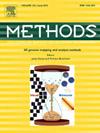CSSEC:一种整合共识和特定自我表达系数的适应性方法,用于多组学癌症亚型分型。
IF 4.2
3区 生物学
Q1 BIOCHEMICAL RESEARCH METHODS
引用次数: 0
摘要
癌症是一种复杂的异质性疾病,准确的癌症亚型可以显著提高患者的生存率。癌症的复杂性跨越多个组学水平,分析癌症亚型的多组学数据是一个备受关注的焦点。然而,从不同的组学数据源中提取互补信息并自适应地整合它们仍然是一个主要的挑战。为了解决这个问题,我们提出了一种整合共识和特定自我表达系数的自适应方法,用于多组学癌症亚型(CSSEC)。首先,将独立的自我表达网络应用于每个组学,计算系数矩阵来衡量患者的相似性。然后,两个特征图卷积网络模块通过topK相关特征捕获共识特征和特定相似特征。最后,利用共识特征和特定相似性特征构建多组学自表达系数矩阵。此外,采用联合一致性和视差约束对自表达系数的融合过程进行正则化。实验结果表明,CSSEC在生存分析方面优于现有的最先进的方法。此外,肾癌的病例研究证实,CSSEC鉴定的癌症亚型具有显著的生物学相关性。完整的代码可以在https://github.com/ykxhs/CSSEC上获得。本文章由计算机程序翻译,如有差异,请以英文原文为准。
CSSEC: An adaptive approach integrating consensus and specific self-expressive coefficients for multi-omics cancer subtyping
Cancer is a complex and heterogeneous disease, and accurate cancer subtyping can significantly improve patient survival rates. The complexity of cancer spans multiple omics levels, and analyzing multi-omics data for cancer subtyping has become a major focus of research. However, extracting complementary information from different omics data sources and adaptively integrating them remains a major challenge. To address this, we proposed an adaptive approach integrating consensus and specific self-expressive coefficients for multi-omics cancer subtyping (CSSEC). First, independent self-expressive networks are applied to each omics to calculate coefficient matrices to measure patient similarity. Then, two feature graph convolutional network modules capture consensus and specific similarity features using the topK relevant features. Finally, the multi-omics self-expression coefficient matrix is constructed by consensus and specific similarity features. Furthermore, joint consistency and disparity constraints are applied to regularize the fusion of the self-expressive coefficients. Experimental results demonstrate that CSSEC outperforms existing state-of-the-art methods in survival analysis. Moreover, case studies on kidney cancer confirm that the cancer subtypes identified by CSSEC are biologically significant. The complete code can be available at https://github.com/ykxhs/CSSEC.
求助全文
通过发布文献求助,成功后即可免费获取论文全文。
去求助
来源期刊

Methods
生物-生化研究方法
CiteScore
9.80
自引率
2.10%
发文量
222
审稿时长
11.3 weeks
期刊介绍:
Methods focuses on rapidly developing techniques in the experimental biological and medical sciences.
Each topical issue, organized by a guest editor who is an expert in the area covered, consists solely of invited quality articles by specialist authors, many of them reviews. Issues are devoted to specific technical approaches with emphasis on clear detailed descriptions of protocols that allow them to be reproduced easily. The background information provided enables researchers to understand the principles underlying the methods; other helpful sections include comparisons of alternative methods giving the advantages and disadvantages of particular methods, guidance on avoiding potential pitfalls, and suggestions for troubleshooting.
 求助内容:
求助内容: 应助结果提醒方式:
应助结果提醒方式:


